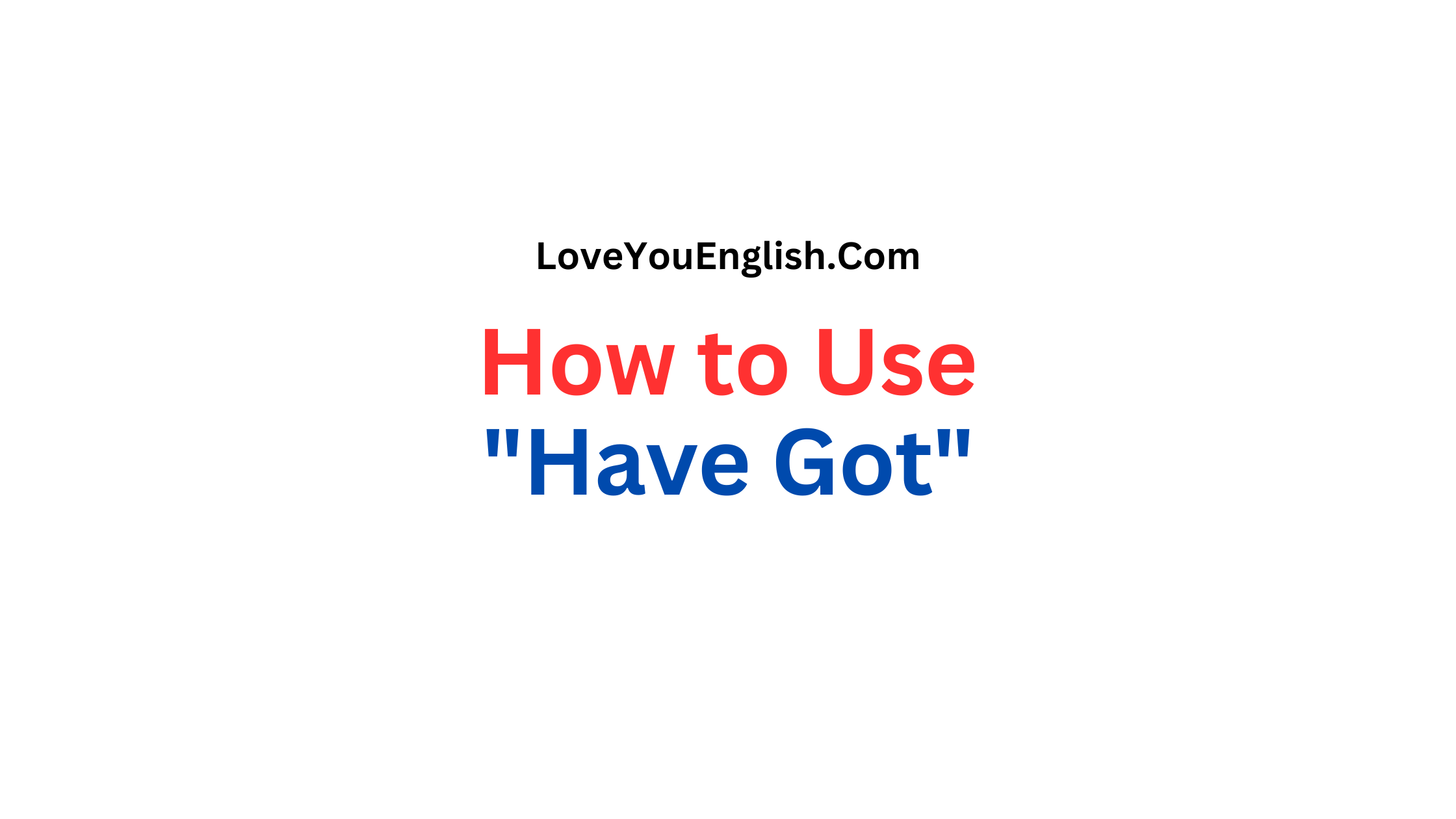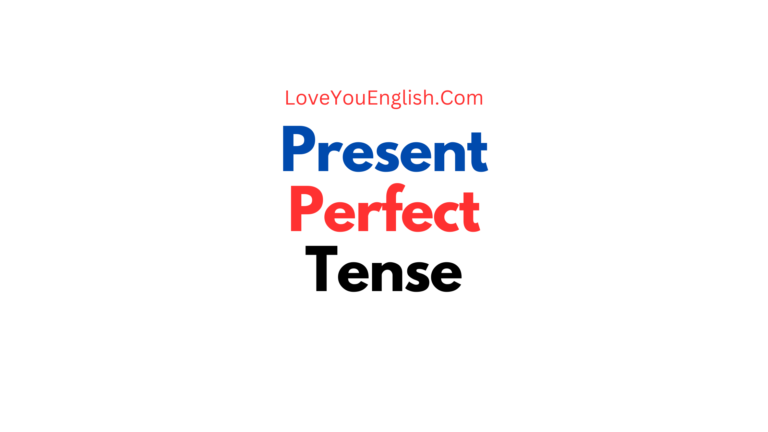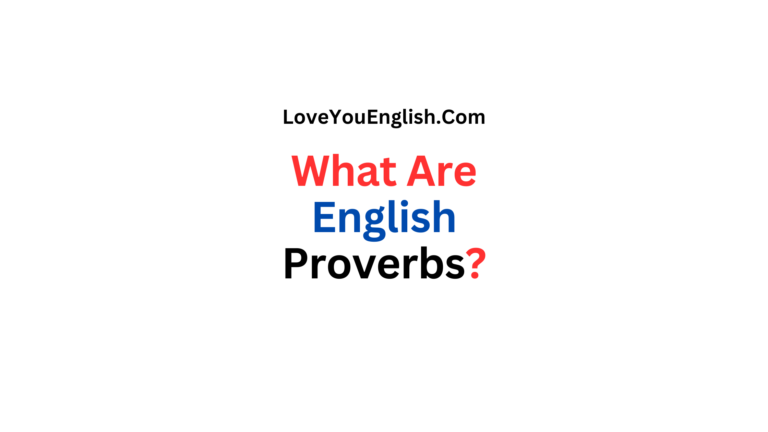Many English learners feel confused about the difference between “have” and “have got.” Both are used to talk about possession, relationships, and certain conditions, but their usage can vary depending on context and style. “Have got” is especially common in British English and everyday conversation, while “have” is often used in more formal or American contexts. Understanding when and how to use “have got” correctly will help you sound more natural and confident.
In this blog post, you will learn how to use “have got” in English grammar with clear rules and simple examples. You will understand its structure in positive, negative, and question forms, as well as common mistakes to avoid. By the end, you will feel more comfortable using “have got” correctly in daily conversations and writing.
What Does “Have Got” Mean?
At its core, “have got” is a way to say “have.”
It’s commonly used to talk about:
- Possession: I’ve got a new car.
- Relationships: She’s got two sisters.
- Characteristics: He’s got blue eyes.
- Obligations: We’ve got to finish this project by Friday.
Where Did “Have Got” Come From?
The phrase originated as a perfect form of “to get,” meaning “to obtain” or “to acquire.”
Over time, it evolved into a widely used alternative to “have” in informal settings.
Comparing “Have Got” and “Have”
In most cases, “have got” and “have” are interchangeable:
- I have got a dog. = I have a dog.
- She has got brown hair. = She has brown hair.
However, “have got” is more common in informal spoken English, particularly in British English. On the other hand, “have” is preferred in formal writing.
When to Use “Have Got”
Here are common situations where “have got” is appropriate:
1. Talking About Possession
- I’ve got a new phone.
- They’ve got a beautiful house.
2. Describing Relationships
- She’s got three children.
- I’ve got a cousin in Australia.
3. Discussing Characteristics
- He’s got a great sense of humor.
- The car’s got a powerful engine.
4. Expressing Obligations
- I’ve got to study for my exam.
- We’ve got to leave early.
5. Questions and Negatives
- Have you got any siblings?
- They haven’t got much time left.
Grammar Rules for “Have Got”
To use “have got” correctly, follow these rules:
1. Subject-Verb Agreement
- I/You/We/They have got (I’ve got, you’ve got…)
- He/She/It has got (He’s got, she’s got…)
2. Present Tense Only
“Have got” is used only in the present tense:
- Present: I’ve got a cold.
- Past: I had a cold last week.
- Future: I will have a cold if I don’t take care.
3. Question Formation
Invert the subject and “have”:
- Have you got any pets?
- Has she got a driver’s license?
4. Negative Statements
Add “not” after “have”:
- I haven’t got any money.
- He hasn’t got time for that.
Common Mistakes with “Have Got”
Here are errors to avoid:
1. Using “Got” Alone
- Incorrect: I got a new car.
- Correct: I’ve got a new car.
2. Mixing “Have” and “Has Got”
- Incorrect: He has got a dog and have got a cat.
- Correct: He has got a dog and has got a cat.
3. Using “Have Got” in the Past Tense
- Incorrect: I had got a headache yesterday.
- Correct: I had a headache yesterday.
4. Forgetting Subject-Verb Agreement
- Incorrect: She have got blue eyes.
- Correct: She has got blue eyes.
“Have Got” Around the World
The usage of “have got” varies across English-speaking regions:
- British English: Very common in speech.
I’ve got a meeting at 2 pm. - American English: Less common, replaced by “have.”
I have a meeting at 2 pm. - Australian/New Zealand English: Similar to British usage.
We’ve got to go to the beach this afternoon. - Canadian English: A mix of British and American preferences.
Informal Contractions
In casual speech, “have got” is often shortened:
- I’ve got → I got: I got a new bike.
- Have you got → You got: You got any spare change?
These are fine in informal conversations but avoid them in formal writing.
“Have Got” vs. “Have Gotten”
Be careful with these:
- I’ve got a car. (I possess a car.)
- I’ve gotten a car. (I recently obtained a car.)
“Have gotten” is more common in American English, while British English uses “have got” for both meanings.
Practical Examples
In Business
- We’ve got a meeting at 3 pm.
- Have you got the sales report ready?
In Education
- I’ve got a lot of homework tonight.
- She’s got excellent grades.
In Social Situations
- We’ve got plans for the weekend.
- Have you got any siblings?
Alternatives to “Have Got”
Here are simpler ways to say the same thing:
- I’ve got a car. → I own a car.
- She’s got blonde hair. → Her hair is blonde.
- We’ve got to leave. → We must leave.
Choose the alternative that fits the tone of your conversation.
Conclusion
Mastering “have got” can make your English sound more natural.
While it’s popular in casual speech, especially in British English, formal settings often call for simpler alternatives like “have.”
With practice, you’ll know when and where to use “have got” effectively. Keep practicing, and soon you’ll use it confidently in your conversations!
FAQs: How to Use “Have Got” in English Grammar
1. What does “have got” mean in English?
“Have got” means to possess or own something.
It has the same meaning as “have” in most cases.
👉 I have got a car. = I have a car.
2. Is “have got” the same as “have”?
Yes, in meaning they are usually the same.
However, “have got” is more common in spoken English, especially in British English.
👉 She has got two sisters.
3. When do we use “have got”?
We use “have got” to talk about:
-
Possession
-
Family relationships
-
Physical features
-
Illness or conditions
👉 They have got a big house.
👉 I’ve got a headache.
4. Is “have got” used in all tenses?
No. “Have got” is mainly used in the present simple.
For other tenses, we use “have”, not “have got”.
❌ I had got a car last year.
✅ I had a car last year.
5. What is the short form of “have got”?
Common contractions are:
-
I’ve got
-
You’ve got
-
He’s got
-
She’s got
-
We’ve got
-
They’ve got
👉 I’ve got an idea.
6. How do we make negative sentences with “have got”?
Use have not got / hasn’t got.
👉 I have not got time.
👉 She hasn’t got a phone.
7. How do we ask questions using “have got”?
Place have/has before the subject.
👉 Have you got a pen?
👉 Has he got a job?
8. Do we use “do/does” with “have got”?
No.
“Have got” does not use do/does in questions or negatives.
❌ Do you have got a car?
✅ Have you got a car?
9. Is “have got” formal or informal?
“Have got” is informal and conversational.
In formal writing, “have” is preferred.
Formal English: I have sufficient experience.
Spoken English: I’ve got enough experience.
10. Is “have got” used in American English?
It is used, but less often than in British English.
Americans usually prefer “have”.
British: I’ve got a meeting today.
American: I have a meeting today.
11. Can “have got” be used for actions?
No.
“Have got” is not used for actions or habits.
❌ I’ve got lunch at 2 pm every day.
✅ I have lunch at 2 pm every day.
12. Can we use “have got” with illnesses?
Yes, very commonly.
👉 I’ve got a cold.
👉 She’s got a fever.
13. What is the difference between “I have got” and “I got”?
-
Have got = possession (present)
-
Got = past tense of get
👉 I have got a laptop. (now)
👉 I got a laptop yesterday. (past)
14. Is “have got” correct for exams like IELTS?
Yes, but:
-
Use it in speaking
-
Avoid it in formal writing
IELTS Writing: I have strong communication skills.
IELTS Speaking: I’ve got good communication skills.
15. What is the easiest way to remember “have got”?
Think of it as:
have got = have (now)
If you are talking about possession in the present, “have got” is usually correct.
Explore more English grammar topics here:
- Past Perfect Continuous Tense: Definition, Rules, and Examples
- Past Simple Tense: Easy Rules, Examples, and Usage Guide
- Adjective Phrases in English: Simple Guide with Definition
- What Are Determiners in English? Easy Definition and Examples
- Phrasal Verbs vs. Idiomatic Expressions: What’s the Difference?






